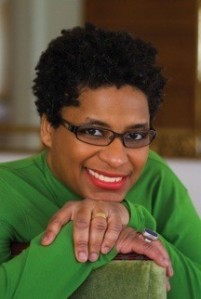WEEKEND READS & FEEDS 10.26.2013
 To Code or Not To Code. That is not the question, nor should it be, writes Mathew Ingram for Paid Content. Journalists, he said, ignore a basic working knowledge of computer programming at their own peril. “Now more than ever knowledge is power,” Ingram states. “More than that, it means having an appreciation for how technology affects the way media and content are being produced, consumed and distributed — and if you don’t understand or appreciate that, or you think it’s someone else’s job to do so, then you are truly screwed.” The argument about whether journalists should learn how to code is an ongoing one that spilled over onto Twitter last week when Olga Khazan wrote a piece for The Atlantic arguing that most journalists don’t need to learn how to code because it wastes time that they should be using to write and report. “If you truly want to compete with the hundreds of other j-school applicants for a reporting job, you should be writing stories until you dream in active verbs, not making ugly code creations,” writes Khazan. This debate, like the ‘who is a journalist’ argument is likely to continue for a long time. Until there is a resolution, here’s a handy website that proclaims “… Anyone Can Learn To Code.” It lays out basic, how-to steps for building a website, scraping data from the Internet and making simple maps. Journalists might even find this coding site… informative.
To Code or Not To Code. That is not the question, nor should it be, writes Mathew Ingram for Paid Content. Journalists, he said, ignore a basic working knowledge of computer programming at their own peril. “Now more than ever knowledge is power,” Ingram states. “More than that, it means having an appreciation for how technology affects the way media and content are being produced, consumed and distributed — and if you don’t understand or appreciate that, or you think it’s someone else’s job to do so, then you are truly screwed.” The argument about whether journalists should learn how to code is an ongoing one that spilled over onto Twitter last week when Olga Khazan wrote a piece for The Atlantic arguing that most journalists don’t need to learn how to code because it wastes time that they should be using to write and report. “If you truly want to compete with the hundreds of other j-school applicants for a reporting job, you should be writing stories until you dream in active verbs, not making ugly code creations,” writes Khazan. This debate, like the ‘who is a journalist’ argument is likely to continue for a long time. Until there is a resolution, here’s a handy website that proclaims “… Anyone Can Learn To Code.” It lays out basic, how-to steps for building a website, scraping data from the Internet and making simple maps. Journalists might even find this coding site… informative.
Speaking of who is and is not a journalist. Jonathan Peters, a media lawyer and the Frank Martin Fellow at the Missouri School of Journalism, writes for PBS MediaShift’s website that defining the term ‘journalist’ is important in light of the proposed journalism shield law recently approved by the senate judiciary committee as well as new guidelines from the U.S. Justice Department that will limit the ability of its lawyers to obtain reporters’ records. Both the senate bill and DOJ’s guidelines attempt to define who will and won’t be deemed a journalist. Some journalists and advocates are pushing back against both DOJ and the senate because they fear government encroachment on press freedoms. “… the legislation is flawed because it should cover all citizens who engage in acts of journalism from being forced to give up their confidential sources,” writes Kevin Gosztola for Firedoglake.com, who argues that both governmental efforts are biased against bloggers and citizen journalists. But not all journalists and free press advocates believe the government’s attempt at defining journalists is necessarily all bad. “…the bill approved Sept. 12 by the U.S. Senate Judiciary Committee is closer in spirit to the idea that journalism is an activity rather than a job,” writes Thomas Kent, deputy managing editor and standards editor for the Associated Press. In a piece for The Huffington Post, Kent argues that “the bill classifies a wide variety of people as journalists and even provides for federal judges to extend the “covered journalist” umbrella to others.” While journalists and their allies try to hash that out, Peters discusses in MediaShift, the findings of a recent study he and Fulbright Scholar Edson C. Tandoc, Jr. conducted in an attempt to nail down a more concrete definition. Culled from descriptions from several different sources, their definition is based on “shared common elements,” of the descriptions they reviewed, Peters writes. From that they came up with this:
A journalist is someone employed to regularly engage in gathering, processing, and disseminating (activities) news and information (output) to serve the public interest (social role).
The definition, the authors say, is descriptive and not intended to be, well, definitive. “…it would be unwise to adopt a definition that excludes unpaid bloggers and citizen journalists who gather, process, and disseminate news and information on matters of public concern. From contributors to CNN iReport, to editors at Circa, to reporters at the New York Times, all are capable of committing acts of journalism,” Peters writes. “Some do it better than others, some have more resources than others, and something is gained when reporting is done by stable organizations with money, logistics, and legal services — but all are capable.” This debate to be continued also.
Colorism In Latino Media. With the October 28 launch of Fusion network, the ABC and Univision joint venture aimed at English-speaking Latino millennials, Maynard Institute’s Richard Prince takes a look at colorism within Latino media. Colorism is a practice of discrimination by which those with lighter skin are treated more favorably than those with darker skin. Also called “the color complex,” it has long been a topic of concern among African Americans, but is also being talked about more openly among Hispanics. According to Prince, Arlene Davila, a professor of anthropology, social and cultural analysis at New York University and an expert on Latino identity and marketing to Latinos, wrote on Facebook about Fusion: “Remember ABC/Univision ‘Fusion”s promise to represent ‘Latino millennials’?? well get ready for more of the same: super white anchors, no Mexican Americans or Puerto Ricans or US Latinos but same old cast you’d find in any Latin American exportable show — except they speak English! Whoever is heading this thing needs to hit our barrios and get a reality check!!” One of her Facebook friends replied, “Well, but what can we expect from Blancovision?” and “The other phrase that we used was Uniblanco,” Prince reported. Prince asked Yvonne Latty, a clinical associate professor in journalism at New York University, for her perspective. Latty, who is Dominican and African American said she is not surprised by the lack of Afro Latinos on Fusion because they are invisible. “The same issues that plague African Americans in terms of jobs on air plague us, but with an unfair twist,” Prince reports. “If a market is interested in hiring a Latino, they will most likely hire a white Latino, that is why a great number of Latinos on air are white Latinos. And that just dates back to stereotypes on beauty and what is pleasing to a general audience. If a market wants to higher a black reporter they will hire an African American, not an Afro Latino…”
Online privacy now sounds like fiction. In advance of this weekend’s rally to stop mass spying by the government in Washington, D.C., Ben Scott and George Mascolo wrote for the New America Foundation’s The Weekly Wonk that “the Summer of Edward Snowden has given way to a Winter of Mistrust. The revelations from the former NSA contractor triggered all manner of responses – vocal support, shrugs, cries of outrage, and dismay. But now that he’s settled into legal limbo in Moscow, we’re left to confront what may be his most dismaying revelation: the basic expectation of private communications on the Internet is now commonly seen as fiction.” Earlier this week Macolo and Scott released a paper that addressed the challenge to finding a way back to trusted communication online, especially in light of the breach of trust revealed by reports of U.S. spying on Germany and other allies. The hard truth, they said: “There is no political or economic power in the world that can guarantee privacy and security in digital communications. The information systems of modern society are fundamentally insecure. We can never be completely certain that no one is watching.” An Amtrak train passenger was watching, listening and live-tweeting as former National Security Administration chief Michael Hayden gave an off-the-record interview to journalists. At one point during his tweets the passenger, political strategist Tom Matzzie, noted that he wasn’t a journalist but might as well be since his “live commentary was quickly picked up by dozens of political and news outlets as it was happening,” Mathew Ingram reported for Gigaom. Just more proof that somebody’s always watching.



